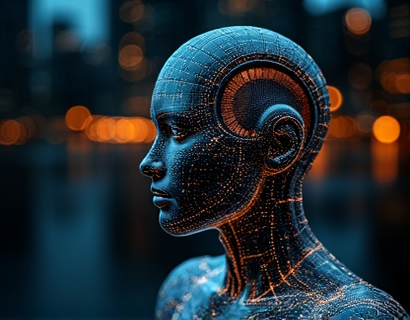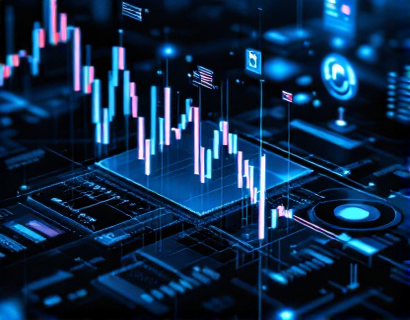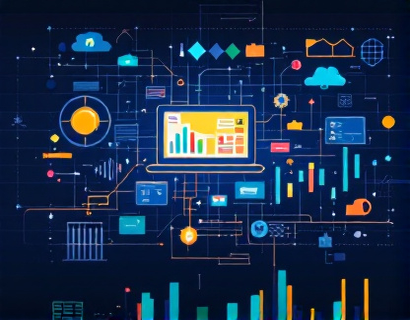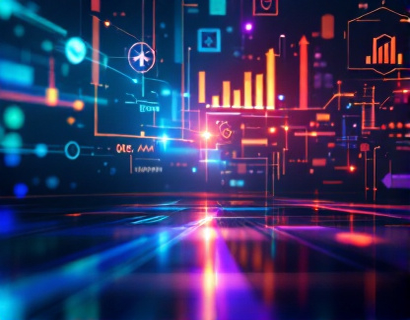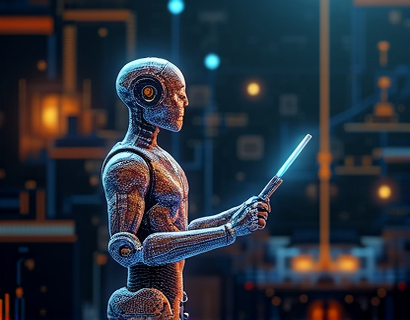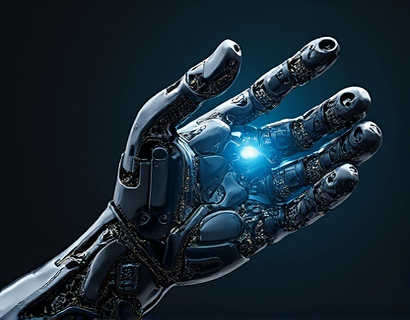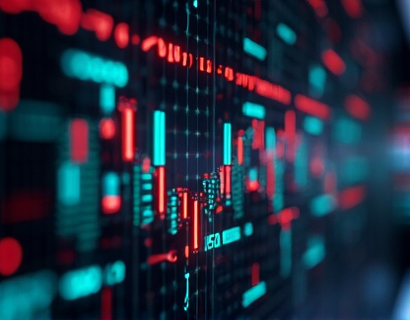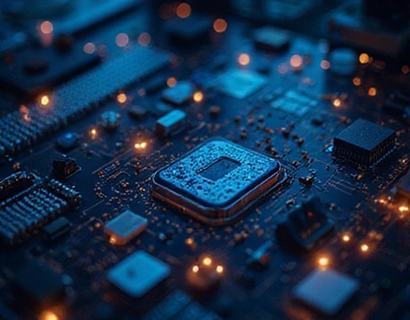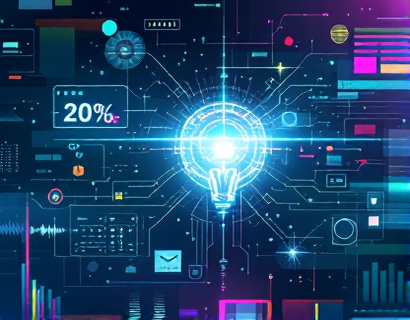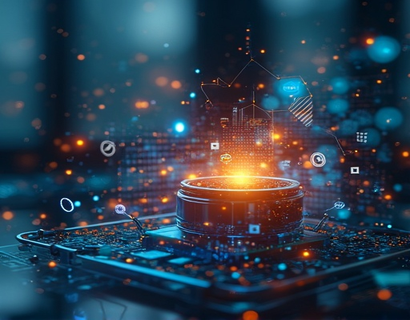AI and Crypto: Powering the Next Generation of Financial Innovation
The intersection of artificial intelligence (AI) and cryptocurrency is ushering in a new era of financial innovation. This fusion is not just enhancing existing systems but redefining the very fabric of digital finance and technology. As tech-savvy crypto enthusiasts and innovators continue to push the boundaries, the potential for AI to transform the crypto landscape is immense. This article explores how AI is revolutionizing various aspects of cryptocurrency, from security and trading to user experience and beyond, setting new standards in the tech and finance sectors.
Enhancing Security with AI
One of the most significant challenges in the crypto space is security. Traditional methods of protecting digital assets are often inadequate against sophisticated cyber threats. AI brings a powerful solution to this problem by enabling more robust and adaptive security measures. Machine learning algorithms can analyze vast amounts of data to identify patterns and anomalies that indicate potential security breaches. For instance, AI-driven systems can monitor blockchain transactions in real-time, detecting and preventing fraudulent activities such as double-spending and phishing attacks. This proactive approach to security not only protects users' assets but also builds trust in the crypto ecosystem.
Moreover, AI can enhance the security of private keys and wallet management. Advanced biometric authentication methods, powered by AI, can provide a higher level of security compared to traditional password-based systems. Facial recognition, fingerprint scanning, and voice recognition, when integrated with AI, offer a seamless and secure way for users to access their crypto assets. This not only reduces the risk of unauthorized access but also simplifies the user experience.
Optimizing Trading and Investment Decisions
The trading and investment landscape in crypto is highly dynamic and complex. AI plays a crucial role in making sense of this complexity by providing insights and predictions that can significantly improve decision-making. AI algorithms can analyze historical data, market trends, and real-time news feeds to generate trading signals and recommendations. These algorithms, often referred to as algorithmic trading bots, can execute trades at optimal times, maximizing profits and minimizing risks. For individual investors, this means access to professional-level trading strategies without the need for extensive expertise.
Furthermore, AI can help in risk management by assessing market volatility and providing alerts based on predefined criteria. Sentiment analysis, another AI application, can gauge the overall mood of the market by analyzing social media, news articles, and other textual data sources. This information can be invaluable for investors looking to make informed decisions. By leveraging AI, traders and investors can navigate the crypto market with greater confidence and precision.
Improving User Experience through Personalization
The user experience in the crypto space can be significantly enhanced through AI-driven personalization. AI algorithms can analyze user behavior, preferences, and transaction history to offer tailored recommendations and services. For example, a crypto exchange powered by AI can suggest relevant assets to buy or sell based on a user's past activities and market conditions. This level of personalization not only makes the platform more user-friendly but also increases user engagement and satisfaction.
Chatbots and virtual assistants, driven by natural language processing (NLP) and machine learning, can provide 24/7 customer support. These AI-powered assistants can answer common queries, guide users through complex processes, and offer real-time assistance, reducing the need for human intervention and improving response times. This not only enhances the user experience but also reduces operational costs for crypto platforms.
Streamlining Blockchain Scalability and Interoperability
Scalability and interoperability are critical challenges for blockchain technology. AI can contribute to solving these issues by optimizing blockchain protocols and facilitating seamless interactions between different blockchain networks. For instance, AI algorithms can analyze blockchain data to identify bottlenecks and suggest improvements to increase transaction throughput and reduce latency. This ensures that the blockchain remains efficient and capable of handling a growing number of transactions.
Interoperability, or the ability of different blockchain systems to communicate and transfer value, is essential for the widespread adoption of crypto. AI can play a pivotal role in developing cross-chain solutions that enable seamless interactions between disparate blockchains. By analyzing and learning from various blockchain protocols, AI can help create standardized interfaces and protocols that facilitate interoperability. This not only enhances the functionality of individual blockchains but also fosters a more connected and integrated crypto ecosystem.
Enhancing DeFi Services with AI
Decentralized Finance (DeFi) has emerged as a transformative force in the crypto space, offering decentralized alternatives to traditional financial services. AI can further enhance DeFi services by providing more sophisticated and user-friendly tools. For example, AI-driven lending and borrowing platforms can assess creditworthiness more accurately by analyzing a wide range of data points, including transaction history and social media activity. This allows for more inclusive and fair access to financial services.
AI can also improve risk assessment and management in DeFi protocols. By continuously monitoring market conditions and user behavior, AI algorithms can adjust parameters such as collateral requirements and loan interest rates in real-time, mitigating risks and ensuring the stability of DeFi platforms. This dynamic approach to risk management is crucial for the long-term sustainability of DeFi services.
Innovative Use Cases and Future Potential
The potential applications of AI in the crypto space are vast and continually evolving. Beyond the areas already discussed, AI can drive innovation in various other domains. For instance, AI-powered predictive analytics can help in forecasting market trends and identifying emerging opportunities. This can be particularly useful for fund managers and institutional investors looking to make strategic decisions based on data-driven insights.
Another exciting area is the integration of AI with non-fungible tokens (NFTs). AI can be used to create dynamic and interactive NFTs that evolve based on user interactions or external data. This opens up new possibilities for artists, creators, and collectors, adding a layer of interactivity and value to digital assets.
Looking ahead, the combination of AI and crypto is poised to revolutionize not only the financial sector but also other industries. The principles of decentralization, transparency, and security inherent in blockchain, when enhanced by AI, can lead to more efficient and trustworthy systems across various sectors, from supply chain management to healthcare.
Conclusion
The fusion of AI and crypto is a powerful force driving the next generation of financial innovation. By enhancing security, optimizing trading, personalizing user experiences, improving blockchain scalability and interoperability, and enhancing DeFi services, AI is setting new standards in the tech and finance sectors. As this synergy continues to evolve, it promises to unlock new possibilities and drive the crypto ecosystem forward. For those at the intersection of technology and finance, the future is bright, and the potential for transformative change is immense.



